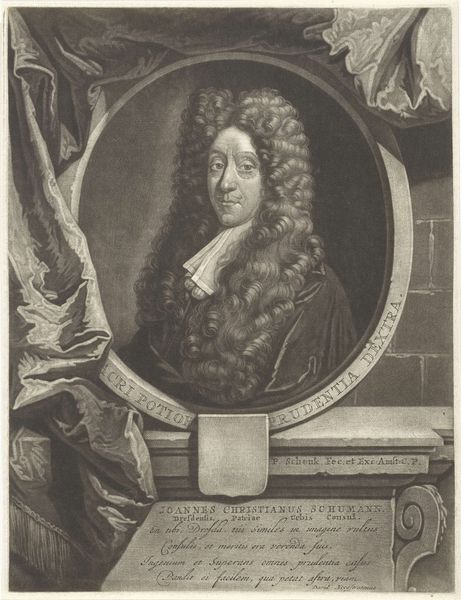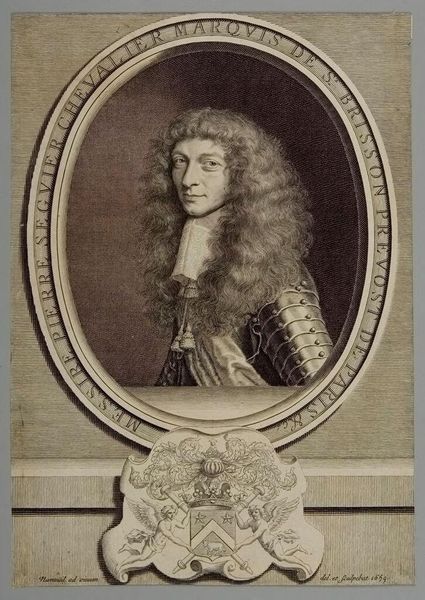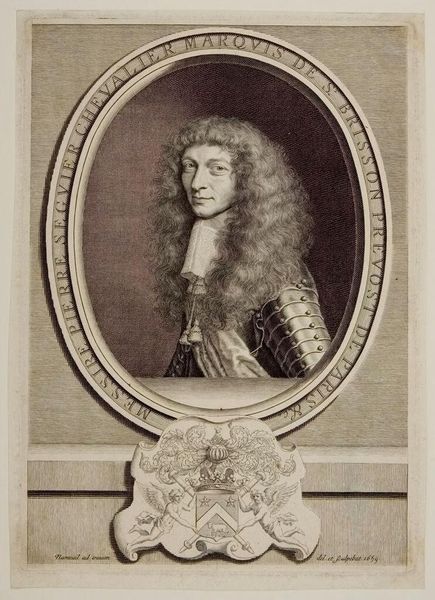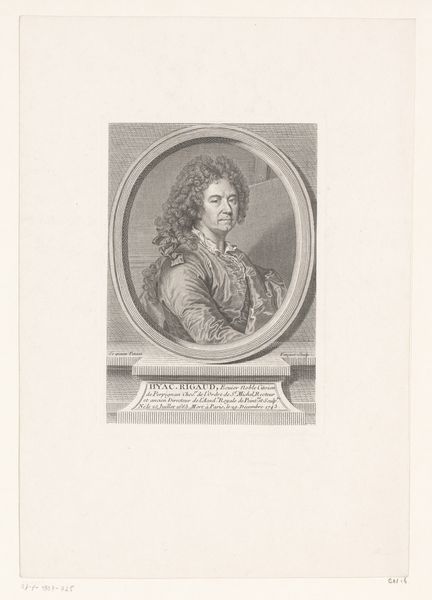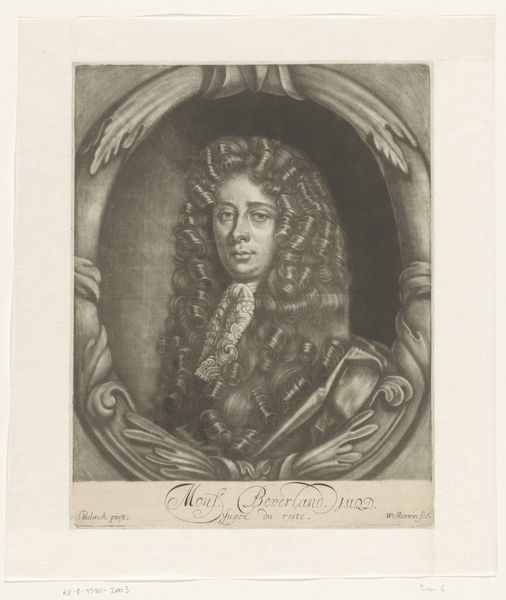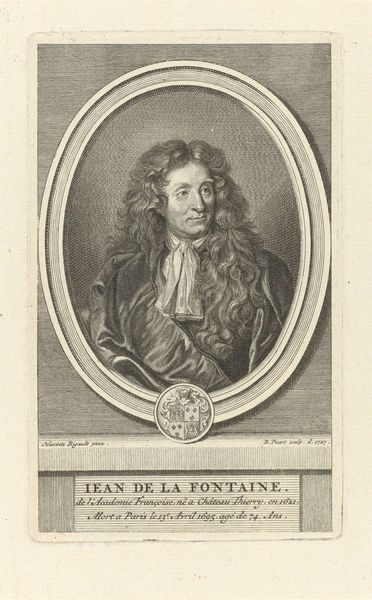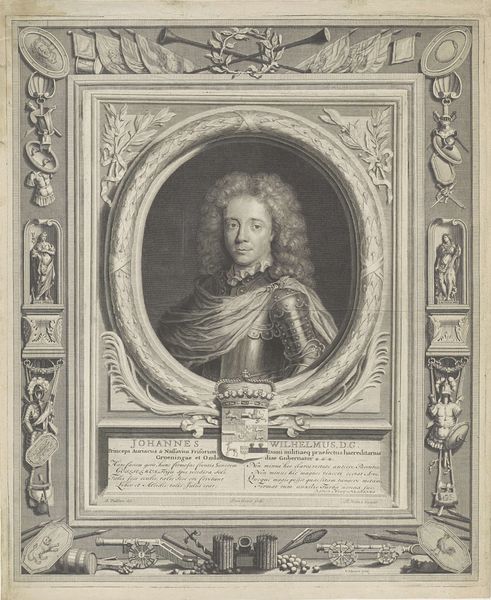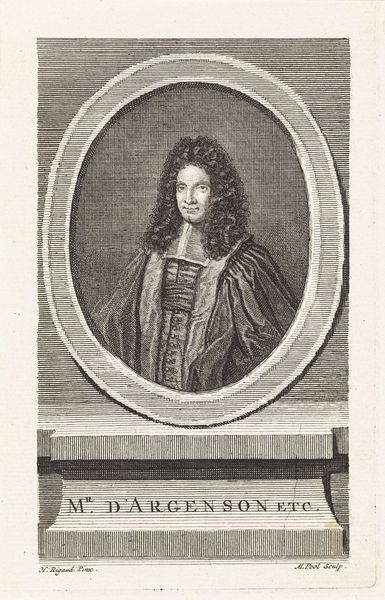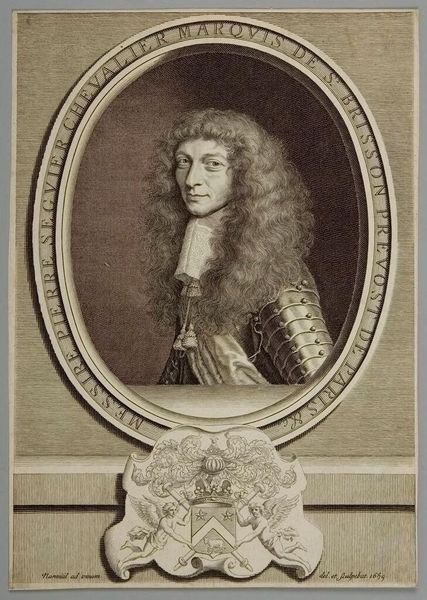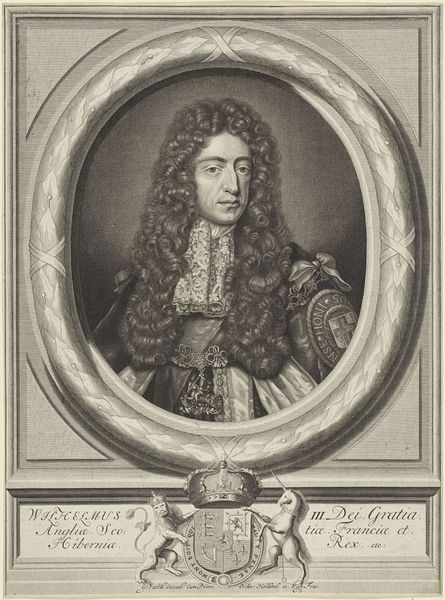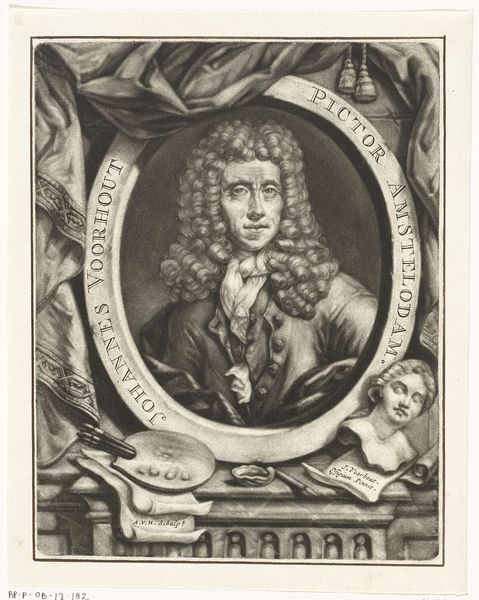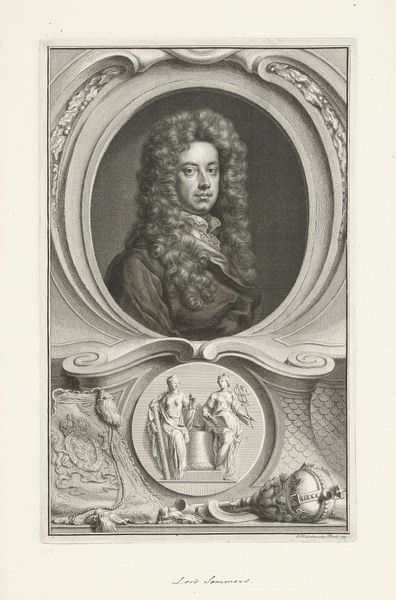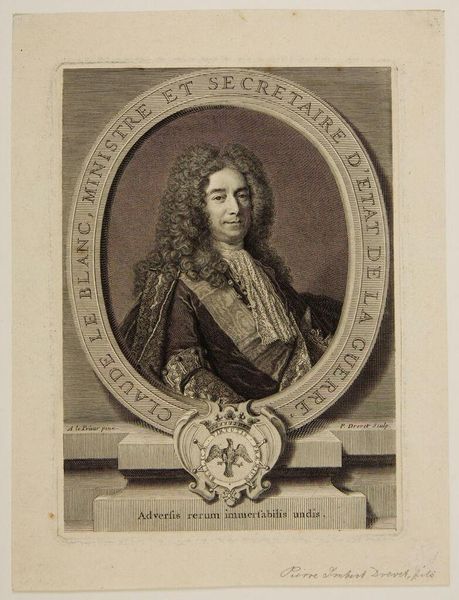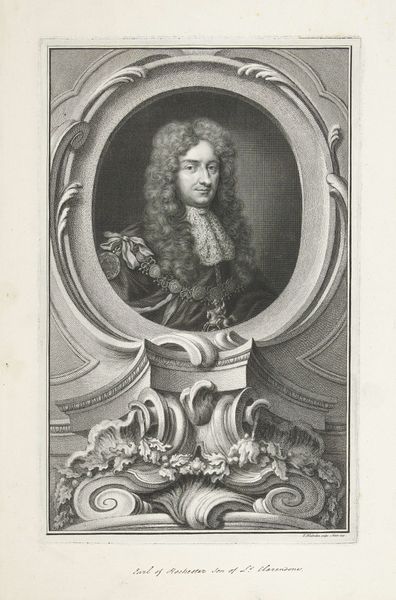
engraving
#
portrait
#
baroque
#
old engraving style
#
history-painting
#
academic-art
#
engraving
Dimensions: height 366 mm, width 241 mm
Copyright: Rijks Museum: Open Domain
George Vertue made this portrait of Robert Boyle in the 18th century, using engraving techniques. This wasn't just about creating an image, but also about participating in a visual economy. Engraving, with its precise lines etched into a metal plate, was a method of reproduction. It allowed images to be disseminated widely, contributing to the growth of print culture. Look closely at the textures Vertue achieves – the flowing wig, the soft fabric of the sitter’s robe, and the scientific instruments arranged around the portrait. Each line is carefully placed, a testament to the engraver’s skill. The portrait isn’t just a likeness; it’s a meticulously crafted object, made through skilled labor. The image of Boyle is surrounded by the tools of his trade, referencing the scientific revolution. Consider the amount of work involved in producing an engraving like this. It speaks to the increasing division of labor in the 18th century, and how image-making was becoming more industrialized. This portrait challenges the traditional boundaries between art, craft, and commerce.
Comments
No comments
Be the first to comment and join the conversation on the ultimate creative platform.
